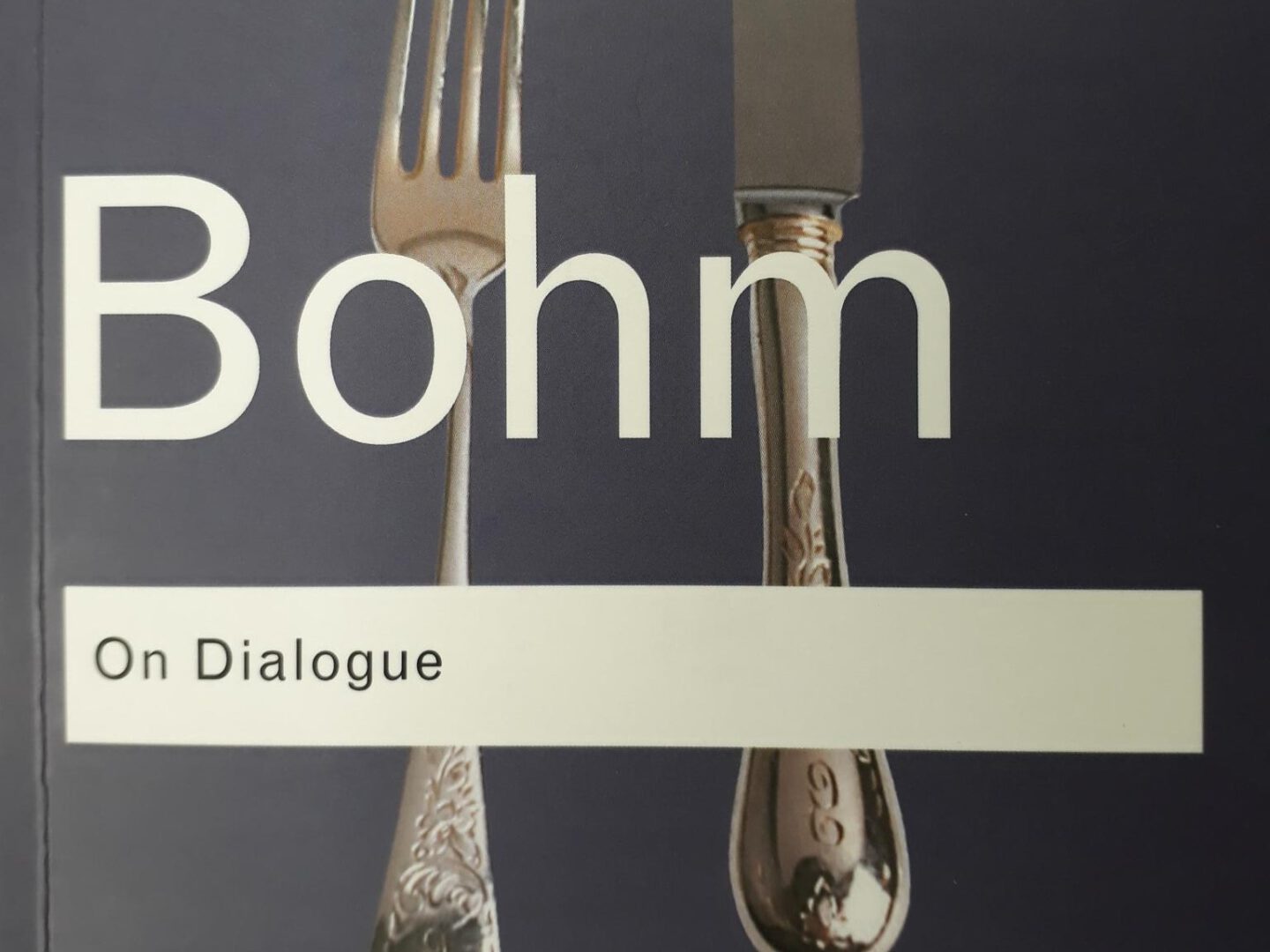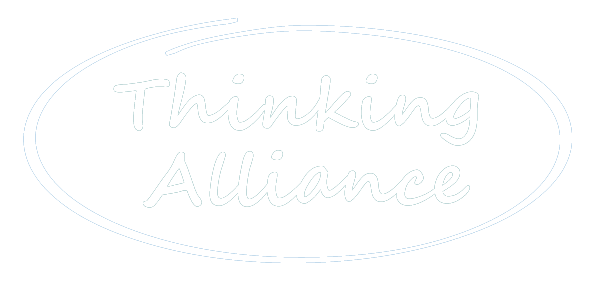
13 Apr Book Review: On Dialogue by David Bohm
Why read this book?
To get better at communicating with other people. To explore how what’s going on in our heads – individually and collectively – gets in the way of thinking and talking clearly and creatively, and what we might do about that. To ponder where new ways of thinking together might take us.
Who should read this book?
- People who are tired of having discussions “like a ping-pong game, where people are batting the ideas back and forth and the object of the game is to win or to get points for yourself”
- People who are curious about how we think as individuals, in groups and in society and how we might get better at it
- Coaches who are looking for inspiration and insights into becoming better and less directive listeners for their clients
What are my thoughts about it?
Routledge’s slim volume of David Bohm’s essays really got me thinking. Bohm’s starting point is that, for the most part, communication is not working. What’s more, our attempts to address communication failures often seem to make things worse rather than better.
Bohm suggests that a way of thinking and talking together, called dialogue, may offer a way forward, noting that:
“In a dialogue, each person does not attempt to make common certain ideas or items of information that are already known to him. Rather, it may be said that the two people are making something in common, ie creating something new together…such communication can lead to the creation of something new only if people are able freely to listen to each other, without prejudice, and without trying to influence each other.”
In his essays, Bohm explores what it means to ‘freely listen’. For example, we need to recognise – and then aim to discard – the many layers of assumptions that have built up in our minds through previous thoughts and experience. These cloud not just our own thinking but also how we perceive the world and other people. As the wonderful Alan Alda puts it:
“Begin challenging your own assumptions. Your assumptions are your windows on the world. Scrub them off every once in a while or the light won’t come in.”
In particular we need to let go of the idea of trying to influence others, to bring them round to our way of thinking. That desire to win brings with it an assumption that our way of doing things or thinking about them is the right or only way – and we are trying to get rid of assumptions. Bohm’s insights on assumptions chime strongly with Nancy Kline’s thinking about limiting assumptions as explored in her Thinking Environment approach.
And of course, Bohm has interesting things to say about interactions between people. He notes that it is by talking and thinking with others that we become more aware of our own assumptions, and theirs. The trick is then to recognise and suspend these assumptions in order to learn and create and move forward. Bohm uses the word ‘suspend’ intentionally. Having noticed an assumption, he suggests neither acting on it nor suppressing it but instead “think of it as suspended in front of you so that you can look at it – sort of reflected back as if you were in front of a mirror…the whole group becomes a mirror for each person”.
The essays can be read on many different levels. Bohm envisages a particular process for achieving dialogue and links to the work and thinking of Jiddu Krishnamurti. At times he is philosophical and has perhaps an idealistic vision of using dialogue at a societal and global level to tackle conflict and global challenges.
That said, Bohm’s reflections are helpful in pointing towards ways we can improve our day to day conversations with colleagues and clients, particularly by recognising and suspending assumptions. I will certainly be drawing on his thinking as I aim to equip myself and my clients to think better and communicate well.
Book details: On Dialogue by David Bohm, Routledge Classics edition 2004

